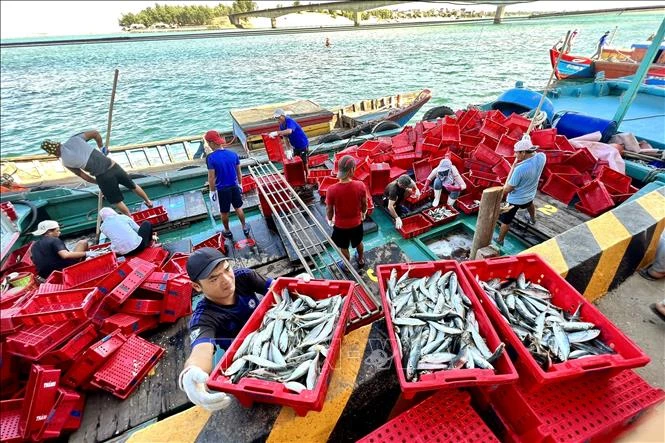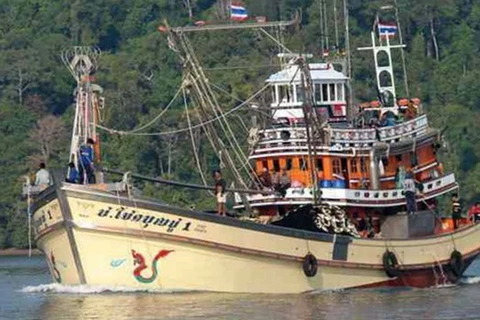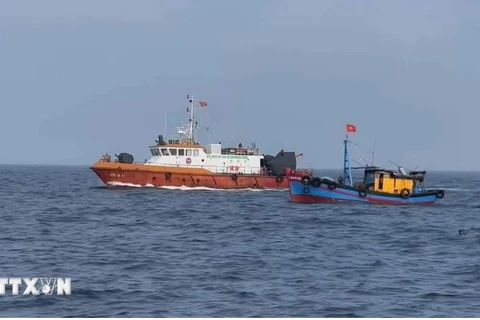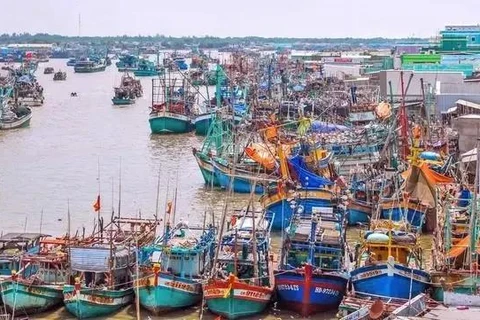
Kuala Lumpur (VNA) – Adnan Hussain, Director General of the Department of Fisheries Malaysia under Malaysia’s Ministry of Agriculture and Food Security, and Sumathy Permal, head of the Centre of Maritime Security and Diplomacy (MSD) of Malaysia, have shared their experience in sustainable fisheries development and cooperation with Vietnam in the field.
Malaysia places high priority on ensuring the sustainability of fisheries resources while recognising the importance of developing the fisheries sector, Hussain told the Vietnam News Agency in Kuala Lumpur.
He said that Malaysia’s will to promote sustainable fisheries sector was demonstrated in its National Agrofood Policy 2021-2030 (NAP 2.0), which has been transformed into a strategic action plan. The documents, along with other relevant policies and guidelines, form the “backbone” of the country's management of its resources and the development of its fisheries sector, the official stated.
Along with applying measures to reduce its dependence on fishing, Malaysia has worked to restore maritime environment and empower local fishermen in managing reserves, he said.
He said that rampant illegal fishing activities in Malaysian waters are causing the country to lose 3-6 billion MYR (637 million USD) each year. In an effort to tackle illegal fishing, Malaysian authorities have focused more on implementing the Monitoring, Control and Surveillance (MCS) scheme following the Fisheries Act 1985. The MCS is an integral part of fisheries management, which includes monitoring and handling fishermen who do not comply with local and national laws, sub-regional or regional conventions, and other relevant regulations, he added.
The official also underlined Malaysia’s cooperation with neighbouring countries in aquatic resources management, emphasising that if a country is protecting threatened and endangered species, then its neighbours should do the same.
He noted that the rate of illegal fishing in the country decreased 4% and the value of the catch rose 7% in 2021 compared to 2020.
However, Hussain said Malaysia is facing an immediate challenge from a lack of awareness and understanding among local fishermen, especially about maintaining fishery resources.
For her part, Permal said that in order to ensure responsible fishing activities, Malaysian fishermen are encouraged to use appropriate communications and navigation devices such as GPS, mobile tracking devices and automatic identification system (AIS), which not only assist them in fishing activities but also prevent accidental intrusion upon foreign waters.
Malaysia is very concerned about illegal, unreported and unregulated (IUU) fishing activities occurring within its national jurisdiction and beyond, she stated, underscoring that the environmental, social, and economic consequences of IUU fishing are enormous, adversely affecting both target and non-target species as well as the broader ecosystem.
Permal emphasised that the Malaysian Government aims to strictly handle illegal fishing by foreign vessels, thereby protecting the country's maritime sovereignty and aquatic resources.
Commenting on the Vietnam - Malaysia fisheries cooperation, Hussain said the two countries have enjoyed good relations both at the bilateral and regional levels in the field.
The two governments have signed a Memorandum of Understanding on agricultural cooperation and another on the establishment of a Technical Working Group on Fisheries to conduct bilateral exchanges on fisheries issues. Malaysia and Vietnam have been cooperating in other areas on multilateral platforms namely the ASEAN Sectoral Working Group on Fisheries (ASWGFi), the Southeast Asian Fisheries Development Centre (SEAFDEC), the Network of Aquaculture Centres in Asia-Pacific (NACA), and the Regional Plan of Action to promote responsible fishing practices, including combating IUU fishing, he noted./.






















